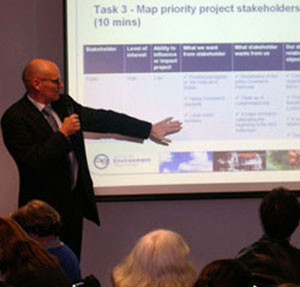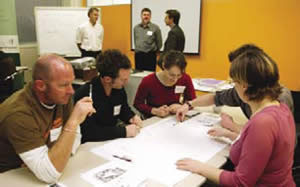Planner
Tasks & duties

Planners may do some or all of the following:
-
study the ways in which areas are developing
-
examine proposed developments that are likely to affect local areas
-
consult with professionals, neighbours and community groups, including Māori, on land, water, and air use and development issues
-
collect and analyse economic, environmental and social data
-
plan and advise on the protection, development and layout of urban and rural areas
-
prepare strategic plans, reserve management plans and catchment plans for areas up to 20 years in advance
-
lodge applications for resource consents, outlining the associated possible environmental effects of projects
-
write and present reports on behalf of councils, companies, applicants and/or submitters at resource consent, environmental, and other hearings
-
make sure developers and resource consent holders comply with relevant Resource Management Act documents
-
monitor the impact of Resource Management Act documents and/or conditions on the environment
-
manage projects, lead teams, and develop communications strategies on environmental issues
-
prepare plain language documents on complex environmental and planning matters
-
prepare and present reports about restoring, protecting or enhancing particular environments
Specialisations
Planners may specialise in the following areas:
-
urban design
-
rural environments
-
transportation
-
community development
-
catchment management
Skills & knowledge

Planners need to have:
-
an understanding of environmental and economic issues
-
knowledge of relevant planning legislation such as the Resource Management Act
-
an understanding of political and social issues
-
knowledge of the workings of local and national government in relation to their area of specialisation
-
knowledge of statistics
-
skill in analysing and interpreting plans and drawings
-
good communication skills
-
presentation and public speaking skills
-
mediation skills
-
research skills
-
good decision-making ability
-
organisational skills
-
computer skills
Entry requirements
To become a planner you usually need to have a degree in planning or resource management. People generally complete one of the degrees on the NZ Planning Institute's accredited course list. The list includes a Bachelor of Planning or a Master of Resource and Environmental Planning.
A postgraduate qualification in planning or research management can help if seeking more senior positions.
To enter the job you may also do another degree (such as science), and include some planning, law and resource management papers. A science degree may be required if you want to work for regional councils, as they often have to deal with water, soil and air management.
Secondary education
You need to have a tertiary entrance qualification to enter further training. Useful subjects include English, economics and geography. Some science subjects, such as biology, may also be helpful to develop an understanding of particular areas of planning.
Tertiary education
A degree in environmental or resource planning is the preferred choice of study.
NZ Planning Institute website - list of accredited degrees and providers
Training on the job
Planners gain many skills on the job. They also go to workshops and seminars, which are often run by the NZ Planning Institute, the Ministry for the Environment, the Resource Management Law Association, or the Society of Local Government Managers.
Useful experience
Useful experience for planners includes:
- work as a planning assistant for councils or consultant firms, possibly during summer vacations
- work on a building site
- draughting or research work
- volunteer work for community or environmental groups, or organisations such as the Department of Conservation
Experience gained from overseas travel may also be helpful.
Related courses
Urban Design and Regional Planning
For more information, please refer to Career Services.
Document Actions
